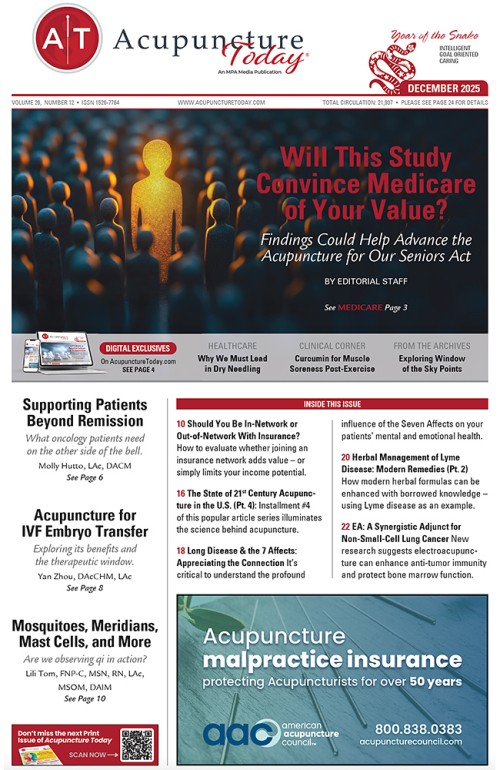Whether you accept it, avoid it or live somewhere in between, insurance coverage has become a defining issue for our profession. Patients increasingly expect to use their benefits, practitioners want to be compensated fairly for their time and expertise, and the system itself remains – at best – fragmented. The encouraging news is that coverage has expanded in meaningful ways. The challenging news is that reimbursement, across the board, remains inadequate.
Acupuncture for IVF Embryo Transfer
In vitro fertilization with embryo transfer (IVF-ET) is a key procedure in assisted reproductive technology, involving the fertilization of eggs outside the body followed by the transfer of embryos into the uterus. Acupuncture has been utilized and proven to improve IVF success rates and increase the chances of pregnancy by enhancing endometrial receptivity, balancing hormones and reducing psychological stress. Let’s explore how to administer acupuncture to achieve optimal outcomes during the IVF process.













